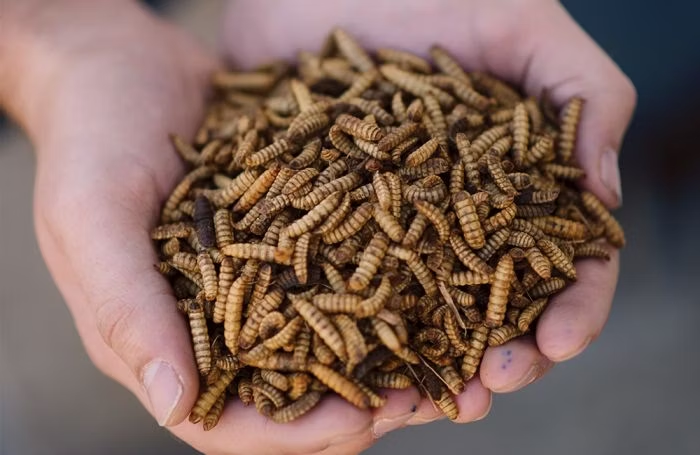A Leap in Sustainable Farming: Costa Rica’s Innovative Use of Fly Larvae
Costa Rica, renowned for its rich biodiversity, is now leading a groundbreaking sustainable farming venture. This Central American nation is turning fly larvae, raised in vertical farms and fed with fruit waste, into a viable source of animal feed. This innovative approach not only capitalizes on the natural resources but also tackles the challenge of sustainability in agriculture.
Guapiles: The Hub of Innovation
In the agricultural town of Guapiles, located just 60 kilometers north of San José, a pioneering company is redefining the role of the ubiquitous flies that hover around crops. By utilizing the black soldier fly (Hermetia illucens), native to Costa Rica’s tropical climate, they have created a sustainable cycle of waste consumption and protein production.
High-Quality Protein from Larvae
Miguel Carmona, the president of ProNuvo, explains the potential of fly larvae as a high-quality protein source. These larvae can offer a “healthier” protein alternative for animals, with a lower environmental impact compared to traditional animal or vegetable-based feeds like beef, fish, or soy protein.
Exporting Sustainable Solutions
ProNuvo’s products, including dried larvae, protein powder, and insect oil, are primarily exported to the United States. However, their use is not limited to foreign markets. A Costa Rican fishery has already incorporated these products into its tilapia farm, showcasing the local application of this sustainable feed.
The Lifecycle of the Black Soldier Fly
At ProNuvo’s facilities, the flies are raised in a controlled environment with temperatures around 40 degrees Celsius and high humidity. Their lifecycle lasts about a week, during which they lay around 500 eggs. The hatching larvae are then fed organic waste from banana, mango, and papaya plantations. In just 14 days, they grow 10,000 times their original weight.
A Zero-Waste Approach
Gabriel Carmona, general manager of ProNuvo and Miguel’s brother, emphasizes the zero-waste philosophy of their operation. The larvae’s excrement is used as a high-quality fertilizer for the fruit plantations, ensuring that no part of the process goes to waste.
Environmental Benefits of Fly Larvae Farming
This innovative farming technique requires significantly less land and water compared to traditional beef or soybean farms. For instance, one ton of beef protein requires around 15.4 million liters of water, while soybean crops need 1.6 million liters. In contrast, larvae farming consumes only about 10,000 liters. Furthermore, the production time for larvae protein is drastically shorter, taking just 14 days compared to months or years for soybeans and cows.
Latin America’s First Insect Protein Farm
The Carmona brothers take pride in being regional pioneers, with their farm being the first in Latin America to produce insect protein. This achievement places Costa Rica at the forefront of sustainable agricultural practices in the region.
A Response to Global Challenges
With rising food, grain, and fertilizer prices due to geopolitical conflicts like the Russia-Ukraine war, innovative solutions like ProNuvo’s larvae farming are gaining attention worldwide. Similar projects in Kenya, Uganda, and Europe are exploring the use of black soldier fly larvae in organic fertilizer production and as a protein supplement for animals.
Costa Rica’s venture into sustainable farming using fly larvae is a testament to the country’s commitment to environmental stewardship and innovation. This approach not only offers a solution to the global challenge of sustainable food production but also positions Costa Rica as a leader in eco-friendly agricultural practices.

